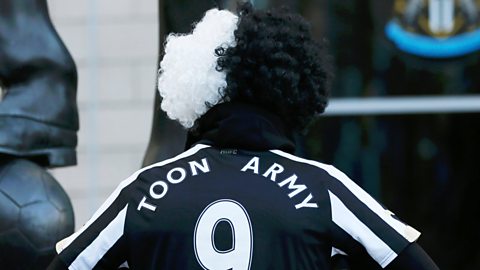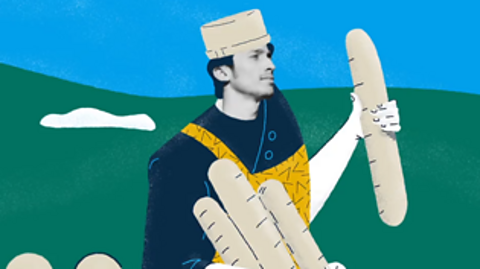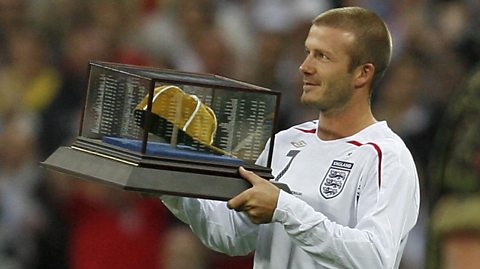They say that change is the only constant in life - and that's certainly true for language too.
We know new words enter the English dictionary every year, but that's not the end of the story. Here are three ways in which the English language was completely transformed, resulting in the way we speak, write and sound today.

Masculine stones, feminine bridges
If youâve ever been confused by inanimate objects being masculine or feminine in other languages (looking at you, Italian â tables are masculine, but chairs are feminine?! AlrightâŠ) and been relieved that doesnât happen in English, be grateful you werenât around at the time Old English was spoken.
Back then, things could be masculine, feminine or neuter. So a bridge was feminine, but a stone masculine, and water neuter â donât ask why. Even more puzzingly, there were several words for âwomanâ, but not all of them were feminine.
Luckily for us, around the 10th century this grammatical gender malarkey started falling out of use, and was completely gone by the mid-14th century, which is why in Modern English inanimate objects and animals are generally referred to as âitâ. Phew.


When rhymes stopped rhyming and spelling went wild
There are many reasons English spelling has left most of us bewildered at some point or another. One of the biggest culprits is a phenomenon called the Great Vowel Shift. Basically, from the 15th to the 18th century, the way people in England pronounced some of their vowels changed massively.
Back in the day, people would have pronounced the word âtimeâ like we say âteamâ today; âhouseâ sounded like âhooseâ and âmateâ as âmaatâ â until they didnât.
The Great Vowel Shift affected parts of Britain in different ways, and regional English can give a fascinating insight as to what our language sounded like pre-shift. If you've ever heard anyone say 'reet' for right, 'toon' for 'town' or 'neet' for night, these are some 15th-century leftovers. It is also one of the reasons we have many today, eg âmeatâ and âmeetâ.
To complicate things further, the shift happened around the same time as the introduction of the printing press, meaning the spelling of some English words was âcrystallisedâ, reflecting their old pronunciation.
So while today you could read a text by, say, Chaucer and probably understand it quite well, it might not make much sense if you heard it as it was pronounced back then. On the other hand, if we were to spell our words to mirror todayâs pronunciation, mate would be spelled something like âmaytâ.
And if all this wasnât enough, some of the words that used to rhyme in Shakespearean English donât anymore, like âloveâ and âproveâ. Heart-breaking.

Rrrrroll with it
From London to Sydney, Auckland to Cape Town, speakers of many English varieties do not pronounce the letter R when it follows a vowel â think of the words art, court or large. Linguists call this non-rhoticity.
There was a time when everyone in England â including Shakespeare, it is believed â pronounced the letter R, no matter where it appeared in a word. But around the 18th century, in the south-east of England, rolling the R became unfashionable and was eventually dropped, with this new pronunciation quickly becoming quite prestigious.
Nowadays an âunrolledâ R is generally associated with standard British English, represented in dictionaries and taught to non-native speakers.
However, rhotic English is alive and well: people in Scotland, Ireland, India, most of the USA and Canada, as well as some strongholds in England (like areas of the south west and Lancashire) sport vibrant r sounds.
And if youâve ever heard someone say âidearâ or âdrawringâ, youâve witnessed an intrusive R, which is also becoming more widespread.
Why does language change over time? revision-guide
Why is it that words and phrases change their meaning? Find out here.

Five words that have changed their meaning
Why we used to call serious people 'silly' - and other language curiosities.

The origins of football jargon
From hat-trick to volley, learn where some of the most popular football lingo comes from.
